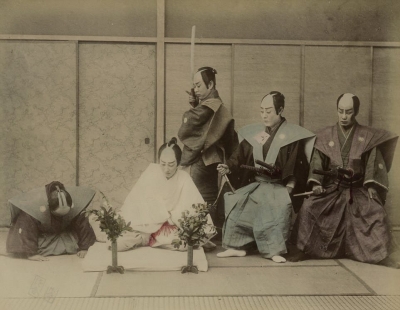
Ceremonial suicide, or hara-kiri, was undertaken by members of the samurai (warrior) class in old Japan. Voluntary hara-kiri dated back to the 12th Century, and was committed to wipe out the dishonour of defeat in battle, as a protest at the behaviour of a superior, and for similar reasons.
The world means “belly-cutting”. If carried out according to the rules, it was a slow and extremely painful means of suicide, meant to demonstrate the military virtues of great courage and extreme self-control.
Another version of hara-kiri was observed when a samurai was sentenced to be beheaded for a crime. To escape the shame of the common executioner, he was allowed to stab himself with a short sword. Immediately afterwards the sentenced samurai would be decapitated by a friend or relative waiting behind him.
A recent case of hara-kiri occurred on November 26, 1970, after the well-known Japanese author, Yukio Mishima, failed to incite a regiment of Japanese soldiers to join his “Association of Shields and stage a coup d’etat. Mishima, who was once mentioned as a possible Nobel Prize winner, is shown in full Samurai warrior’s uniform.
Picture Credit : Google




